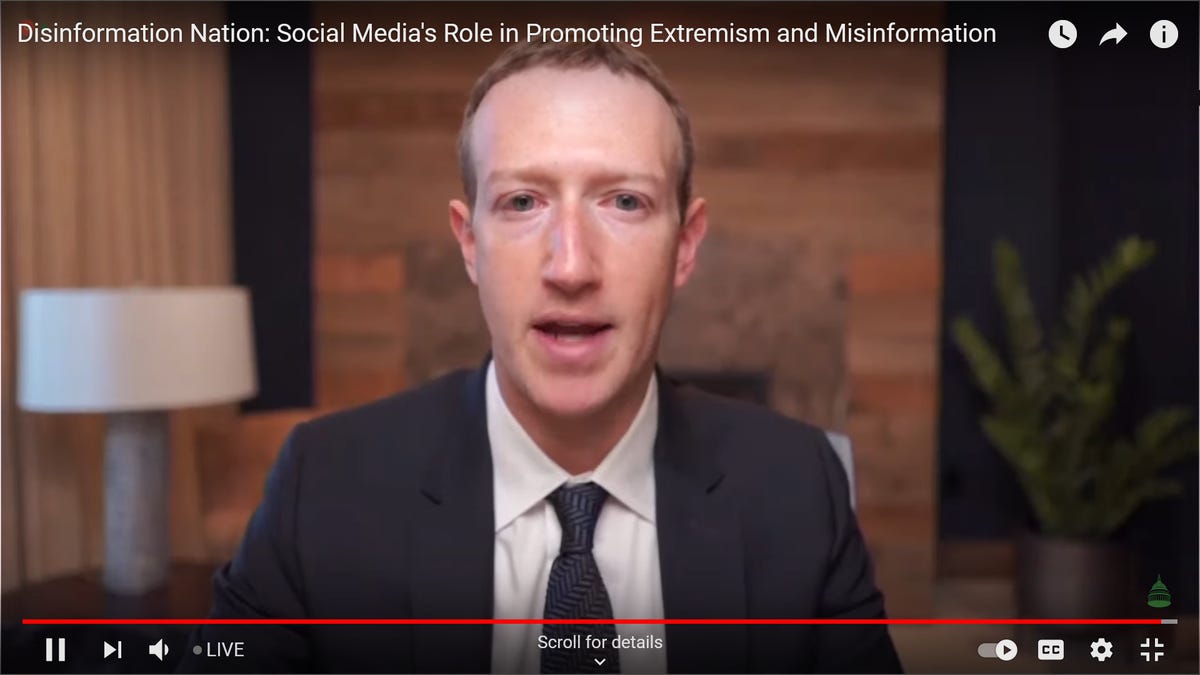
With members of Congress seemingly dead set on passing legislation to address extremism and misinformation on the internet, Mark Zuckerberg is offering his input[1]. The Facebook CEO appeared before a House committee[2] on Thursday, where he suggested ways to amend Section 230 of the US Communications Decency Act.
"The principles of Section 230 are as relevant today as they were in 1996, but the internet has changed dramatically," Zuckerberg said in his prepared remarks, delivered to a subpanel of the House Energy and Commerce Committee. He appeared before the subpanel along with Alphabet CEO Sundar Pichai and Twitter CEO Jack Dorsey.
Straight out of the gate, lawmakers expressed their anger at the social media leaders for failing to rein in misinformation on their platforms. Specifically, they called out content that spread misinformation about COVID-19 vaccines, as well as content that fomented anger and spread misinformation ahead of the attempted insurrection on the US Capitol in January.
"You have the means [to stop misinformation], but time after time you are picking engagement and profit" over healthy civic discourse or public health and safety, said Communications and Technology Subcommittee Chairman Mike Doyle (D-PA). "We will legislate to stop this."
Lawmakers have for some time discussed changes to Section 230 of the Communications Decency Act, part of the Telecommunications Act of 1996[3]. The law exempts online platforms from liability for content posted by third parties.
Zuckerberg suggested changing the law in a manner largely in line with Facebook's existing practices.
"We believe Congress should consider making platforms' intermediary liability protection for certain types of unlawful content conditional on companies' ability to meet best practices to combat the spread of this content," he said. "Instead of being granted immunity, platforms should be required to

